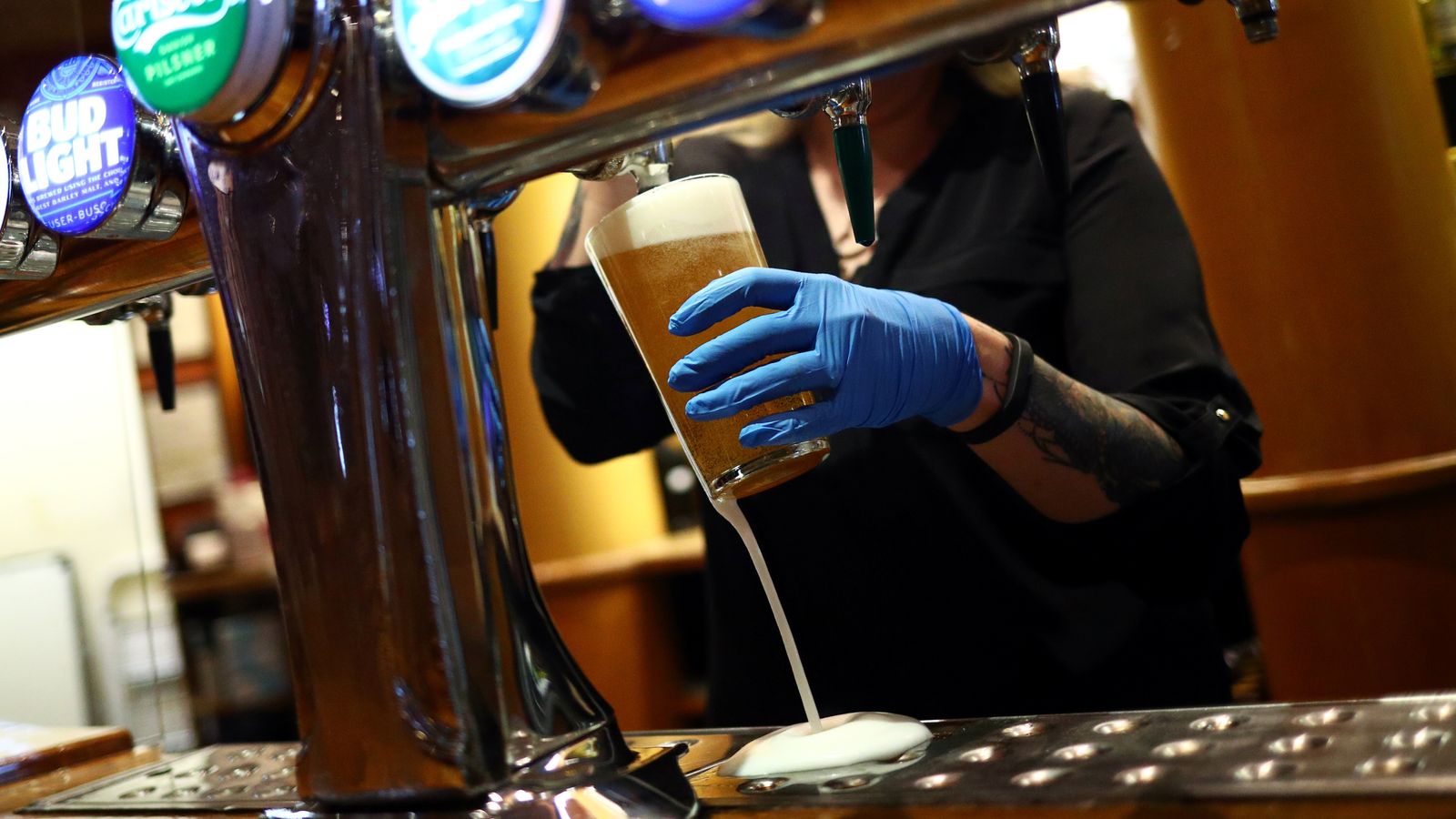JD Wetherspoon, the pub chain, has reported a fall in annual losses despite rising costs from energy and wages.
The company has had more than two years of hardship, mainly because of the COVID pandemic.
Its chairman Tim Martin – never one to keep his opinions to himself – has been among the most prominent business leaders to criticise the public health measures imposed in response to the virus, particularly in its latter stages.
The chain’s recovery has since been held back by the rising cost of labour, ingredients and energy. Its bottom line has also been hurt by the rising cost of repairs, which had been put off during the pandemic.
The company reported a loss of £30.4m for the 12 months ending 31 July. That followed a £154.7m loss for the previous 12 months.
Sales, Wetherspoons said, continued to be lower than pre-pandemic levels. But it reported that like-for-like sales in the first nine weeks of its new financial year were 10.1% higher than the same time a year earlier.
Mr Martin said that the greatest threat to the business, and the whole hospitality sector, was the potential for more COVID restrictions, rather than the cost of living crisis.
Liz Truss rules out energy-saving campaign amid power blackout warning
Government defies climate warnings by proceeding with new North Sea oil and gas exploration
Cost of living: Higher mortgage costs ‘to exert more significant downward pressure on house prices’
Shares in the company rose by more than 5% even though the annual dividend was withdrawn.
Analysts said that Wetherspoons was likely to prove more attractive than many rivals given its focus on low prices and scale, but Charlie Huggins, head of equities at Wealth Club, said: “2022 was another annus horribilis for Wetherspoons.
“The recovery from the pandemic has been slower than the group initially expected, meaning sales and profits are a long way short of where they would want them to be.
“And while the threat of COVID is now receding, another has reared its ugly head – inflation.
“Wetherspoons’ business model is heavily exposed to the rise in energy and food bills.
“While it can pass on some of these cost increases, it will be reluctant to push prices too far, for fear of ostracising its customer base.”











